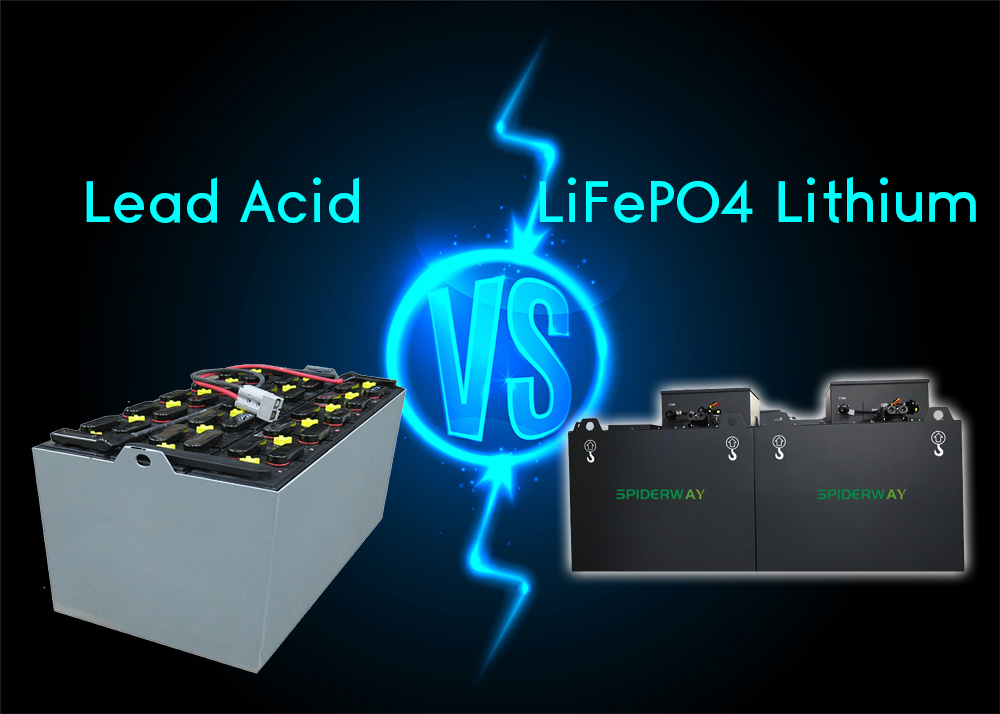
When it comes to industrial vehicles, choosing the right battery technology is crucial for performance, efficiency, and long-term savings. In recent years, the comparison between Lead Acid Battery VS LiFePO4 Battery has gained considerable attention. While lead-acid batteries have been the traditional choice for various applications, lithium iron phosphate (LiFePO4) batteries are quickly becoming a popular alternative due to their unique advantages. But which one is better for industrial vehicles?
In this article, we will provide a detailed comparison of Lead Acid Batteries and LiFePO4 Batteries, focusing on aspects such as performance, lifespan, cost, and their specific suitability for industrial vehicles. We will also break down the key differences between these two technologies using data tables and insights to help you decide which is the best option for your needs.
What is a Lead Acid Battery?
Lead-acid batteries are one of the most widely used types of rechargeable batteries worldwide. They work through a chemical reaction between lead plates and sulfuric acid, which creates electrical energy. Known for their durability, reliability, and relatively low cost, lead-acid batteries have been used for decades in various applications, from automotive to industrial vehicles.
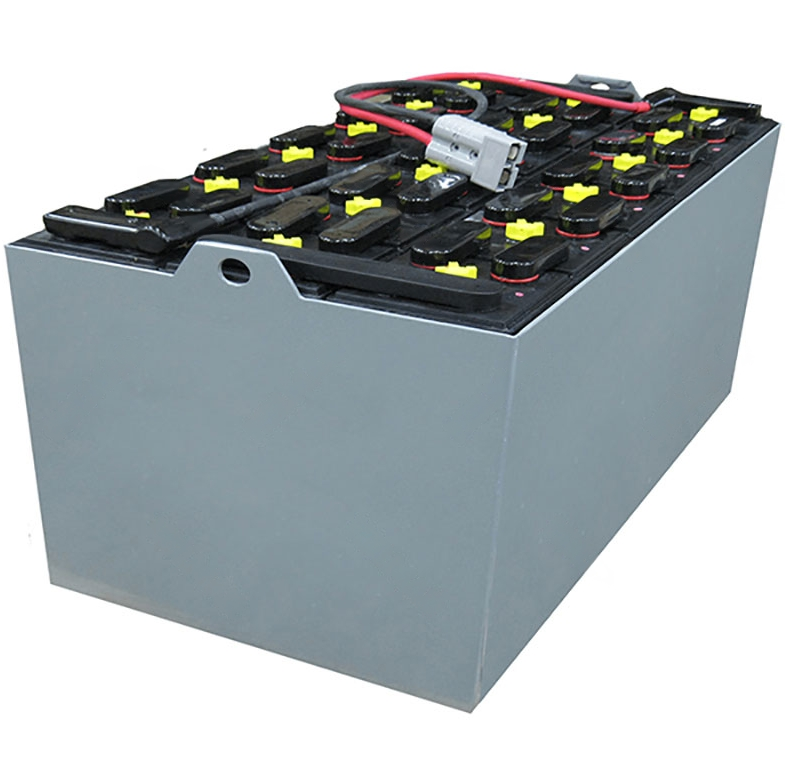
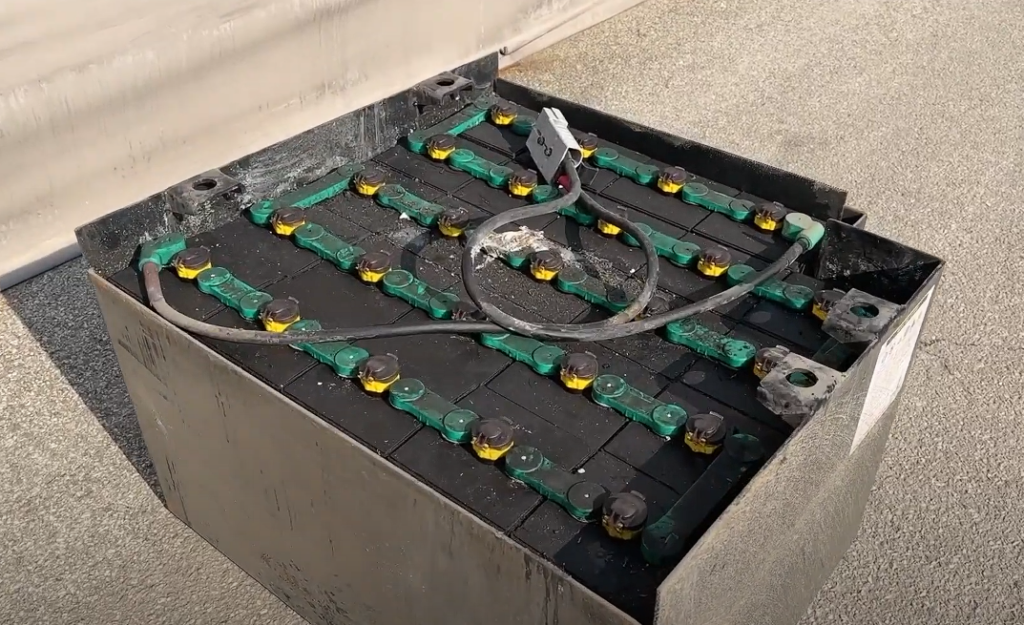
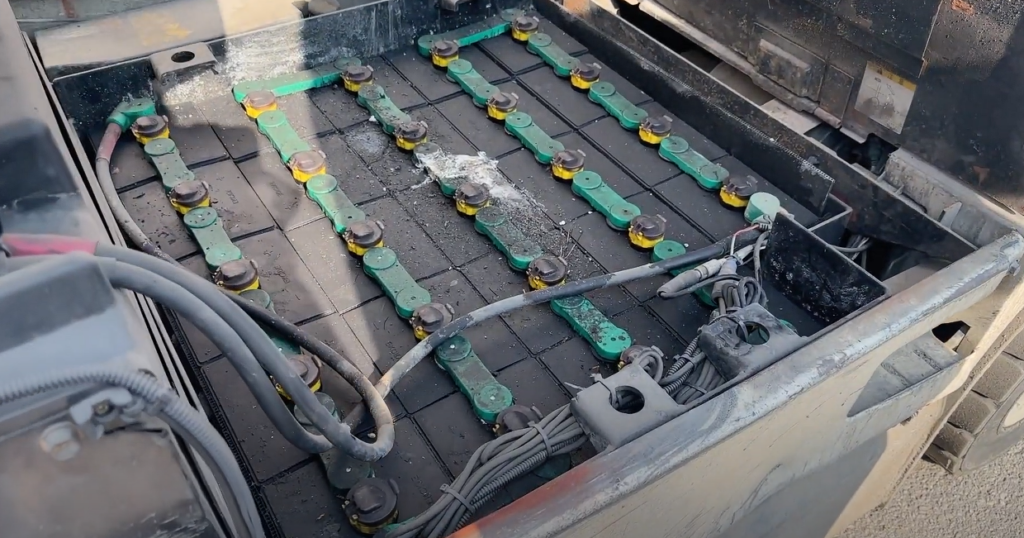
What is a LiFePO4 Battery?
Lithium Iron Phosphate (LiFePO4) is a type of lithium-ion battery, which uses lithium iron phosphate as the cathode material. This battery technology is favored for its high energy density, long life cycles, and safety features. While LiFePO4 batteries are more expensive initially, they offer significant advantages in terms of performance, environmental impact, and operational cost savings over time.
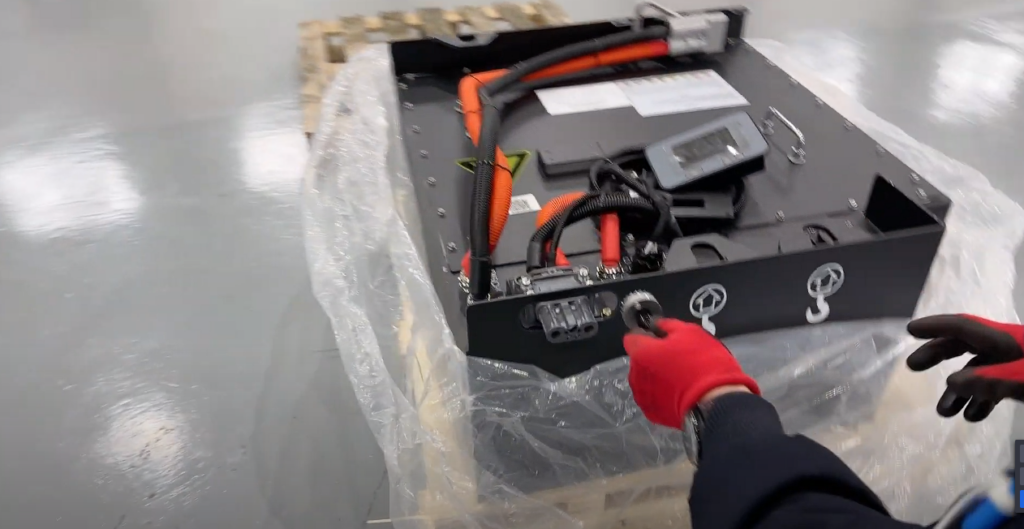
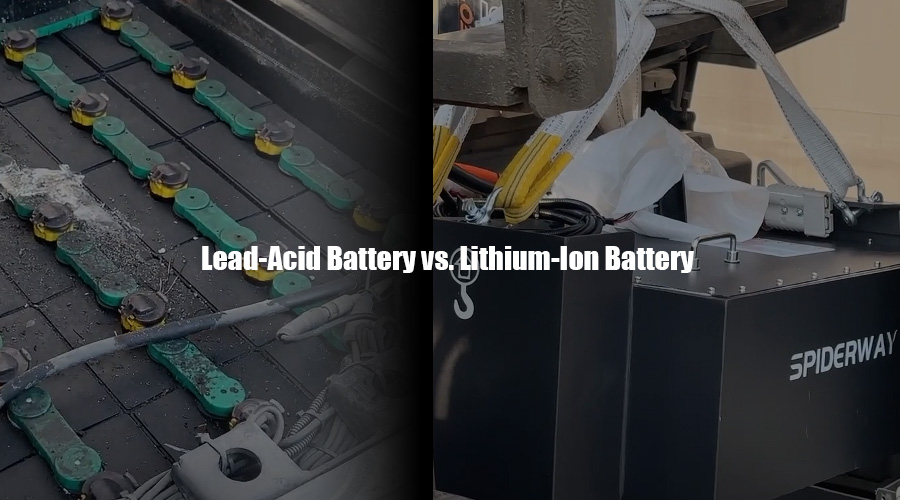
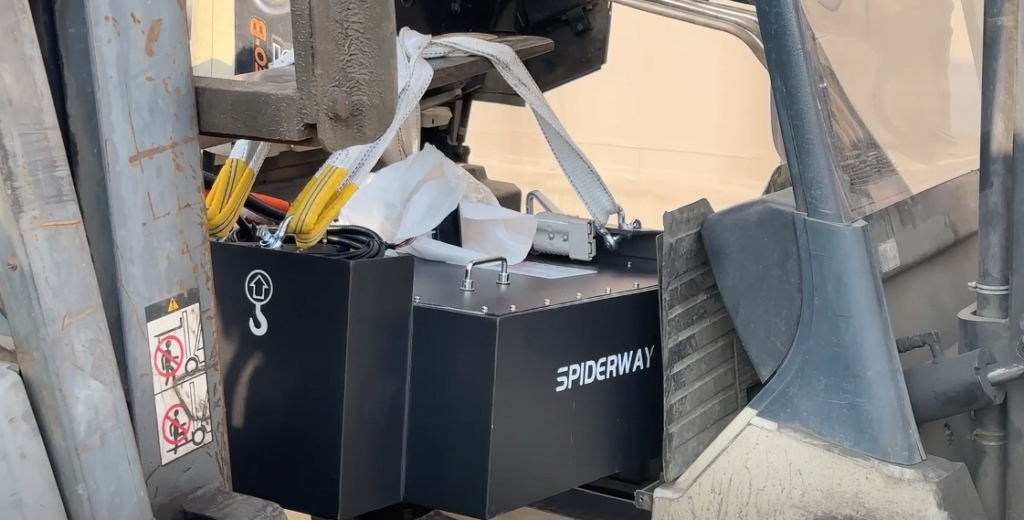
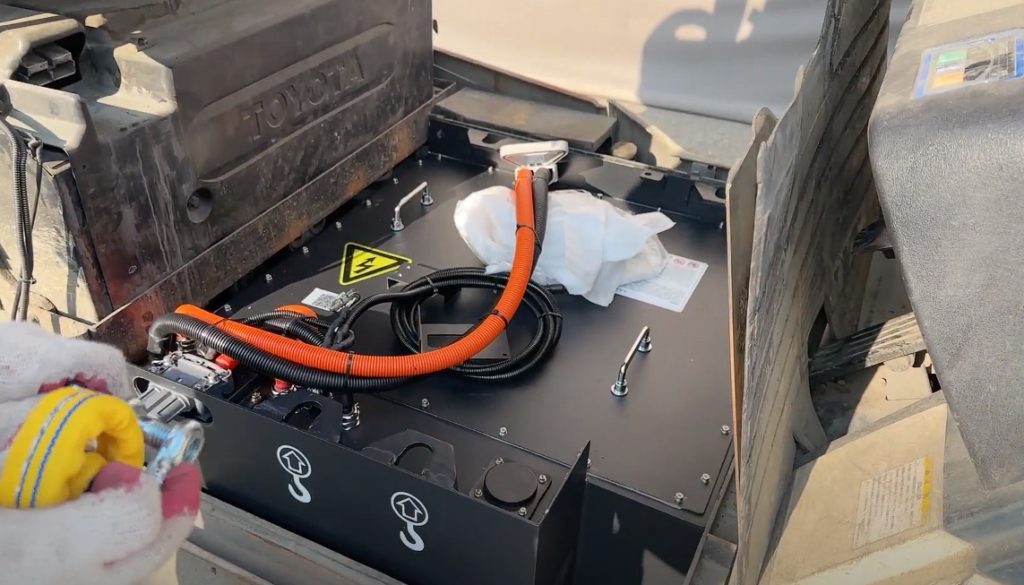
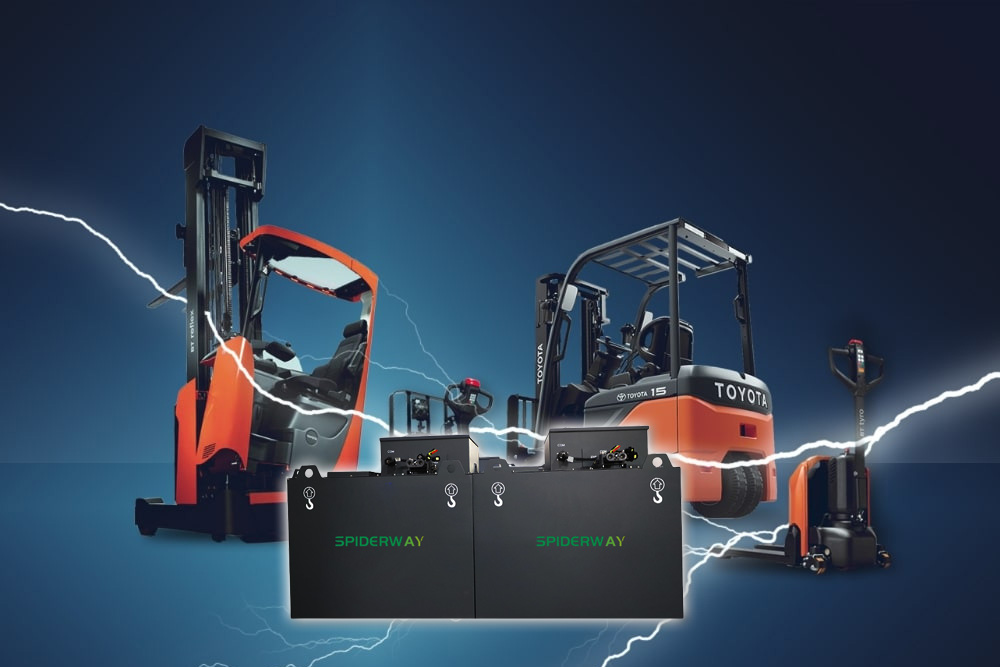
Key Differences Between Lead Acid and LiFePO4 Batteries
To better understand the differences, let’s take a look at the data comparison of Lead Acid vs LiFePO4 batteries across several critical parameters, particularly in the context of their use in industrial vehicles.
| Parameter | Lead Acid Battery | LiFePO4 Battery |
|---|---|---|
| Energy Density (Wh/kg) | 30-50 Wh/kg | 100-160 Wh/kg |
| Cycle Life | 300-500 cycles | 2,000-5,000 cycles |
| Weight | Heavy, typically 20-30% heavier than LiFePO4 | Light, 30-40% lighter than lead acid |
| Voltage | 2V per cell, typically 12V or 24V systems | 3.2V per cell, commonly 12V or 24V systems |
| Charging Time | 6-8 hours | 2-3 hours |
| Operating Temperature Range | -18°C to 50°C | -20°C to 60°C |
| Self-Discharge Rate | High (~5% per month) | Low (~2% per month) |
| Efficiency | 75-80% | 95-98% |
| Cost (per kWh) | $100-$150 | $200-$300 |
| Maintenance | Requires regular maintenance | Requires minimal maintenance |
| Discharge Rate | Slower, less efficient under high loads | Fast, handles high loads more efficiently |
| Environmental Impact | Higher due to lead and sulfuric acid | Lower, more environmentally friendly |
Advantages and Disadvantages of Lead Acid Batteries
Advantages of Lead Acid Batteries:
- Cost-Effective: Lead-acid batteries are generally much cheaper upfront than LiFePO4 batteries, which makes them an attractive choice for initial investment.
- Mature Technology: Lead acid batteries have been used for over 150 years, and their performance characteristics are well understood in various industries.
- Easy Availability: They are widely available, making replacement and disposal simpler in many regions.
Disadvantages of Lead Acid Batteries:
- Shorter Lifespan: Lead acid batteries typically last for 300-500 cycles, which means more frequent replacements.
- Heavier: The higher weight can be a disadvantage for industrial vehicles, as it affects performance and energy efficiency.
- Higher Maintenance: Regular maintenance is required to ensure the battery remains functional, such as checking fluid levels and ensuring there is no corrosion.
Advantages and Disadvantages of LiFePO4 Batteries
Advantages of LiFePO4 Batteries:
- Longer Lifespan: With 2,000-5,000 cycles, LiFePO4 batteries last significantly longer than lead acid batteries, reducing long-term replacement costs.
- Higher Efficiency: LiFePO4 batteries have an efficiency of 95-98%, meaning less energy is wasted during charging and discharging.
- Fast Charging: LiFePO4 batteries typically charge much faster than lead acid, with full charging times of 2-3 hours.
- Lightweight: LiFePO4 batteries are lighter, which improves the overall performance of industrial vehicles by reducing weight.
- Low Maintenance: These batteries require almost no maintenance, making them hassle-free in the long run.
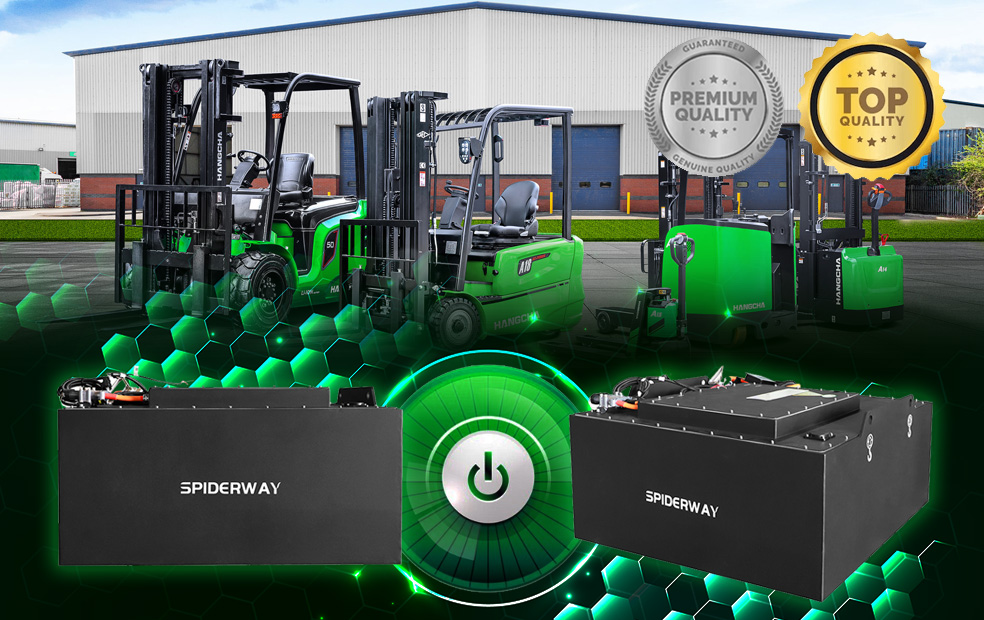
Disadvantages of LiFePO4 Batteries:
- Higher Initial Cost: LiFePO4 batteries come with a significantly higher upfront cost compared to lead acid batteries.
- Less Widely Available: While gaining popularity, LiFePO4 batteries are still not as widely available or understood as lead-acid batteries.
- Sensitive to Overcharging: LiFePO4 batteries are more sensitive to overcharging, requiring proper charging systems to maintain their longevity.
Application of Lead Acid and LiFePO4 Batteries in Industrial Vehicles
When considering industrial vehicles, such as forklifts, electric trucks, and material handling equipment, both Lead Acid and LiFePO4 batteries have distinct benefits. The choice largely depends on factors such as operational hours, frequency of charging, environmental conditions, and budget.
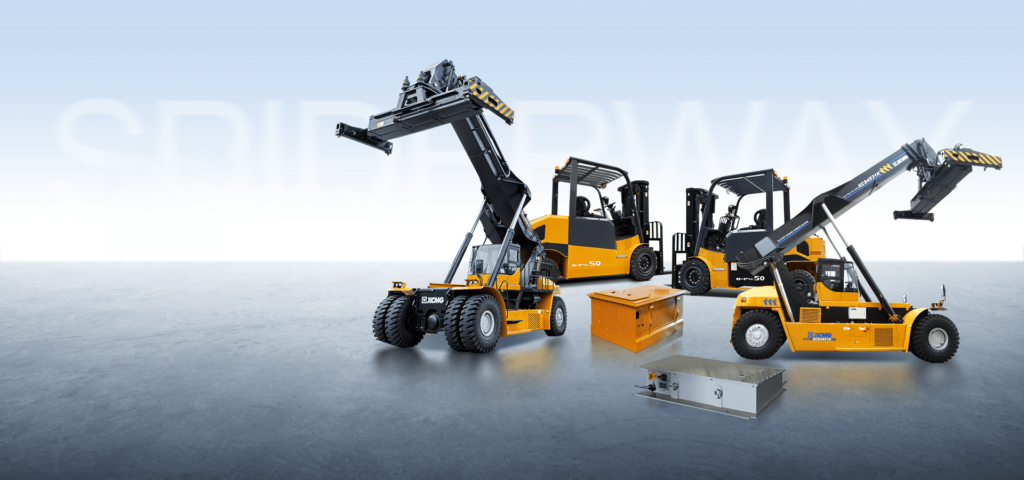
- Lead Acid in Industrial Vehicles:
- Pros: Lead acid batteries are more cost-effective upfront, making them suitable for industries with tight budgets. They are widely used in industries like warehousing, logistics, and manufacturing for lighter-duty applications.
- Cons: Frequent maintenance, shorter lifespan, and inefficiency in handling heavy loads make them less suited for high-demand operations.
- LiFePO4 in Industrial Vehicles:
- Pros: LiFePO4 batteries are better suited for industries requiring high performance, fast charging, and low downtime. They are ideal for operations with high usage rates and those that need minimal maintenance. Their longer lifespan also contributes to lower overall operational costs.
- Cons: The higher initial investment is a barrier for some businesses, though the long-term savings can outweigh this cost.
Which is Better for Industrial Vehicles: Lead Acid vs LiFePO4?
When deciding between Lead Acid and LiFePO4 batteries for industrial vehicles, the decision largely depends on the specific needs and constraints of your business:
- If upfront cost is a primary concern, lead acid batteries might be the right choice, especially for industries that don’t require heavy-duty, high-efficiency systems.
- If long-term investment, low maintenance, and better performance are crucial, then LiFePO4 batteries are the superior choice, despite the higher initial cost.
In general, businesses that rely on industrial vehicles for round-the-clock operations or in demanding environments will see more significant benefits from LiFePO4 technology.
FAQs
Which battery lasts longer: Lead Acid or LiFePO4?
- LiFePO4 batteries last significantly longer, with a cycle life of 2,000-5,000 cycles compared to 300-500 cycles for lead acid batteries.
Are LiFePO4 batteries safer than Lead Acid batteries?
- Yes, LiFePO4 batteries are generally considered safer due to their thermal stability and lower risk of leakage or explosion compared to lead-acid batteries.
How much do LiFePO4 batteries cost compared to Lead Acid batteries?
- LiFePO4 batteries are generally more expensive, with prices ranging from $200-$300 per kWh, compared to lead acid’s $100-$150 per kWh.
Which battery is better for electric forklifts?
- LiFePO4 batteries are better for electric forklifts due to their high energy density, fast charging, and long lifespan.
Can I replace a Lead Acid battery with a LiFePO4 battery in an industrial vehicle?
- Yes, you can replace a Lead Acid battery with a LiFePO4 battery, but it’s essential to ensure compatibility in terms of voltage and charging systems.
Do LiFePO4 batteries require more maintenance than Lead Acid batteries?
- No, LiFePO4 batteries require very little maintenance, unlike lead acid batteries, which need regular maintenance such as checking the water levels and cleaning terminals.
Conclusion
The comparison of Lead Acid Battery vs LiFePO4 Battery reveals that while lead acid batteries remain a cost-effective option, LiFePO4 batteries
https://www.spider-way.com/lead-acid-battery-vs-lifepo4-battery-comprehensive-comparison-for-industrial-vehicles/?_unique_id=67e5ba0085b70
Comments
Post a Comment